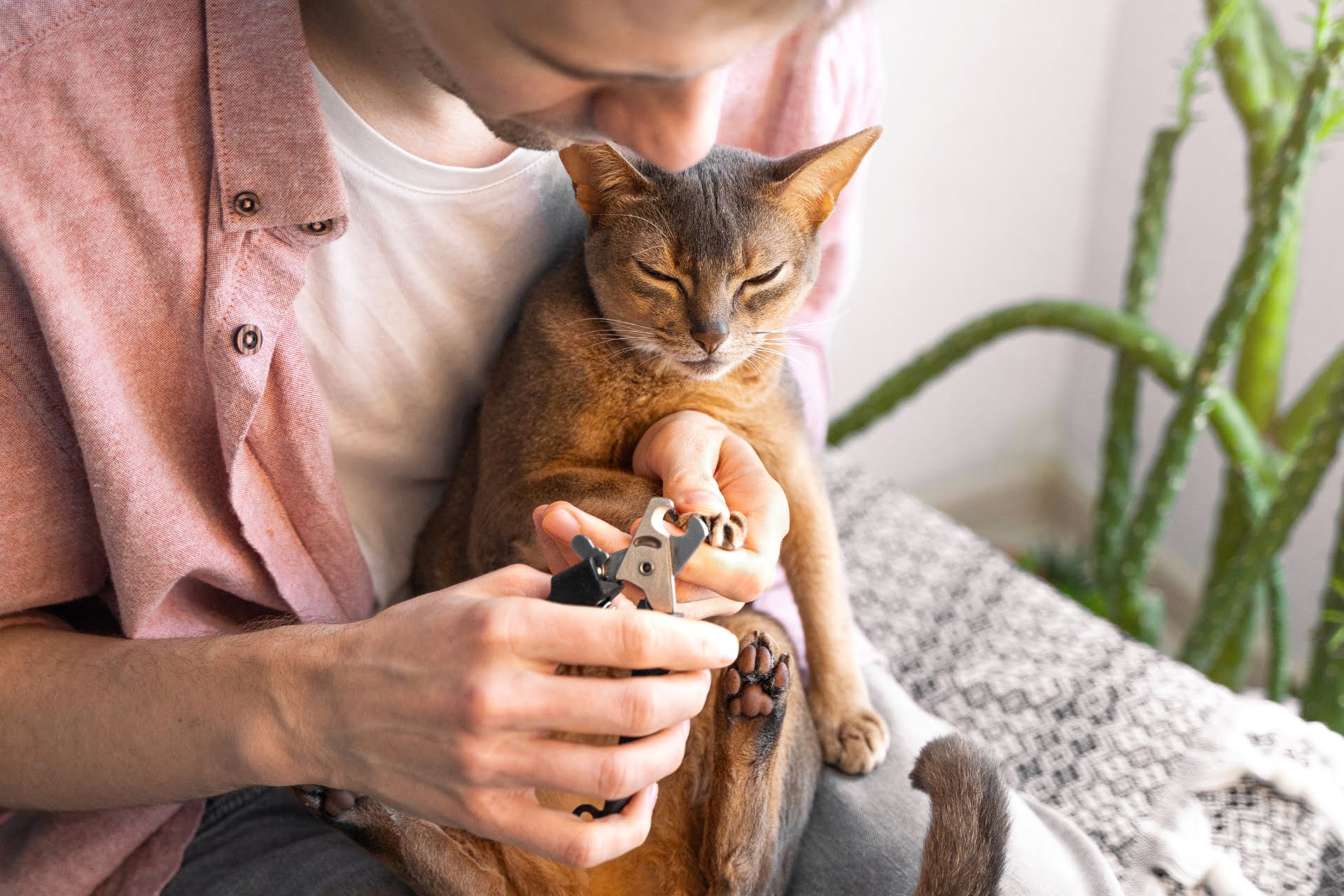5 Common Rabbit Illnesses: Causes and Treatment Options
Rabbit illnesses are common and can affect the health and well-being of your beloved pet. By familiarizing yourself with the common causes, recognizing the symptoms, and seeking timely veterinary care, you can help ensure the best possible outcomes for your rabbit’s health. Additionally, practicing preventive measures, providing a balanced diet, and creating a stress-free environment are crucial in keeping your rabbit healthy and happy.
Contents
#1 Gastrointestinal Stasis
Gastrointestinal stasis, also known as “GI stasis” or “bunny bloat,” is a common condition among rabbits. It occurs when the rabbit’s digestive system slows down or completely stops functioning. This can lead to a buildup of gas and a decrease in the production of fecal pellets. Common causes of GI stasis include a poor diet lacking in fiber, stress, dehydration, and certain medications.
#2 Dental Problems
Rabbits have continuously growing teeth, and if not properly worn down, they can develop dental problems. Malocclusion, a condition where the teeth do not align properly, can cause issues with eating and lead to painful dental abscesses. Dental problems in rabbits are often a result of genetics or a lack of proper chewing opportunities.
#3 Respiratory Infections
Respiratory infections are another common health concern in rabbits. These infections can be caused by bacteria, viruses, or even environmental factors such as poor ventilation or exposure to drafts. Common symptoms of respiratory infections in rabbits include sneezing, coughing, nasal discharge, and difficulty breathing.
#4 Urinary Tract Disorders
Urinary tract disorders can affect both male and female rabbits. These disorders can include urinary tract infections, bladder stones, and even bladder sludge. The causes of these conditions can vary, but factors such as a high-calcium diet, dehydration, and genetics can contribute to their development. Signs of urinary tract disorders in rabbits include frequent urination, blood in the urine, and difficulty passing urine.
#5 Parasitic Infestations
Parasites can also pose a threat to the health of rabbits. Common parasites that can infest rabbits include fleas, mites, ticks, and intestinal worms. These parasites can cause irritation, discomfort, and even lead to more serious health issues if left untreated. Regular preventive measures, such as flea and parasite control, are essential in maintaining your rabbit’s health.
Causes of Rabbit Illnesses
While there are specific causes for each rabbit illness mentioned above, there are also some general factors that can contribute to their development.
Poor Diet and Nutrition
A diet lacking in essential nutrients, especially fiber, can make rabbits more susceptible to various illnesses. It’s crucial to provide rabbits with a balanced diet that includes plenty of fresh hay, leafy greens, and a limited amount of pellets. Avoid feeding them foods that are high in sugar or carbohydrates, as these can disrupt their digestive system.
Stress and Environmental Factors
Rabbits are sensitive creatures that can easily become stressed by changes in their environment. Loud noises, excessive handling, or a sudden change in their living arrangements can lead to stress-related illnesses. Creating a calm and secure environment for your rabbit is important to prevent such issues.
Genetic Predisposition
Some rabbits may have a genetic predisposition to certain illnesses. Breeders should be mindful of breeding practices to reduce the risk of passing on genetic conditions to offspring. Additionally, adopting rabbits from reputable sources and ensuring their lineage is known can help minimize the chances of inheriting genetic health issues.
Recognizing Rabbit Illnesses
It’s essential for rabbit owners to be able to recognize the signs and symptoms of illness in their pets. Early detection and prompt veterinary care can significantly improve the chances of successful treatment. Here are some common physical symptoms and behavioral changes to watch out for:
Physical Symptoms
- Loss of appetite
- Weight loss
- Lethargy
- Swollen or abnormal-looking body parts
- Abnormal discharges from the eyes, nose, or ears
- Difficulty breathing
Behavioral Changes
- Changes in litter box habits
- Aggression or irritability
- Hiding or seeking isolation
- Excessive grooming or scratching
- Reduced activity or mobility
Treatment Options for Rabbit Illnesses
When your rabbit falls ill, seeking veterinary care is crucial. A qualified veterinarian with experience in treating rabbits will be able to provide a proper diagnosis and recommend suitable treatment options. Depending on the illness, the following treatment approaches may be recommended:
Veterinary Care
A thorough physical examination by a veterinarian is usually the first step in diagnosing rabbit illnesses. Additional tests such as blood work, X-rays, or ultrasounds may be required to determine the underlying cause of the illness. Veterinarians can also provide supportive care, administer medications, and perform necessary procedures.
Medications and Treatments
Depending on the specific illness, medications such as antibiotics, pain relievers, or antiparasitic drugs may be prescribed. Some conditions may require surgery or dental procedures to address underlying issues. It’s important to follow your veterinarian’s instructions regarding medication dosage and administration.
Supportive Care at Home
In addition to veterinary care, providing supportive care at home is essential for the recovery of your rabbit. This may include creating a comfortable and stress-free environment, ensuring proper nutrition and hydration, and administering any prescribed medications or treatments as directed.
Prevention and Care Tips
While some rabbit illnesses may be unavoidable, there are steps you can take to minimize the risks and promote overall well-being in your furry friend. Here are some prevention and care tips to keep in mind:
Proper Diet and Nutrition
A balanced diet that consists of fresh hay, leafy greens, and a limited amount of pellets is crucial for your rabbit’s health. Avoid feeding them foods that are high in sugar or carbohydrates. Provide plenty of fresh water and ensure they have constant access to hay for proper digestion.
Stress Reduction
Creating a calm and stress-free environment for your rabbit is important. Provide a quiet and secure space for them to retreat to when they need privacy. Minimize loud noises, handle them gently, and introduce changes to their environment gradually to prevent unnecessary stress.
Regular Veterinary Check-ups
Scheduling regular check-ups with a rabbit-savvy veterinarian is crucial for maintaining your rabbit’s health. Regular examinations can help detect any early signs of illness and allow for timely intervention. Your veterinarian can also provide guidance on proper nutrition, preventive care, and answer any questions or concerns you may have.
Conclusion
Rabbits are adorable and gentle creatures that make wonderful pets. However, just like any other living being, they can fall ill. It’s important for rabbit owners to be aware of the common illnesses that can affect their furry friends, as well as the causes and treatment options available. In this article, we will explore the various rabbit illnesses, their causes, and the treatment options that can help your beloved bunny recover and stay healthy.
FAQs
Q1: Can I treat my rabbit’s illness at home without veterinary intervention? A1: It’s important to seek veterinary care for your rabbit’s illness. Self-diagnosis and treatment without professional guidance can be risky and may worsen the condition.
Q2: How can I prevent dental problems in my rabbit? A2: Providing your rabbit with plenty of chew toys, appropriate hay, and a balanced diet can help promote dental health and prevent dental problems.
Q3: Are there any specific vaccinations required for rabbits? A3: While there are no specific vaccinations required for pet rabbits in most cases, it’s essential to consult with a veterinarian to determine if any vaccinations are recommended based on the individual rabbit’s circumstances.
Q4: How often should I take my rabbit to the vet for check-ups? A4: It is generally recommended to take your rabbit for a check-up at least once a year. However, older rabbits or those with pre-existing health conditions may require more frequent visits.
Q5: Can stress really make my rabbit sick? A5: Yes, stress can significantly impact a rabbit’s health. It’s important to provide a calm and secure environment for your rabbit to minimize stress levels and prevent stress-related illnesses.
Remember, if you notice any signs of illness or changes in your rabbit’s behavior, consult with a veterinarian promptly. They will provide the best guidance and treatment options for your furry friend’s specific needs.




